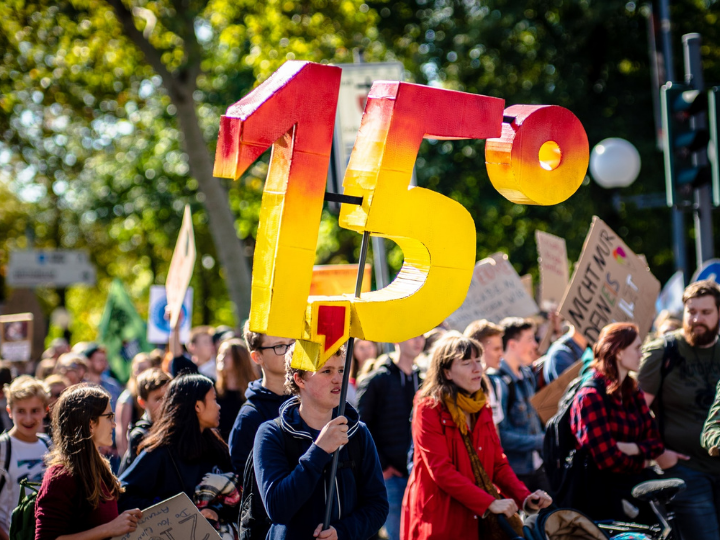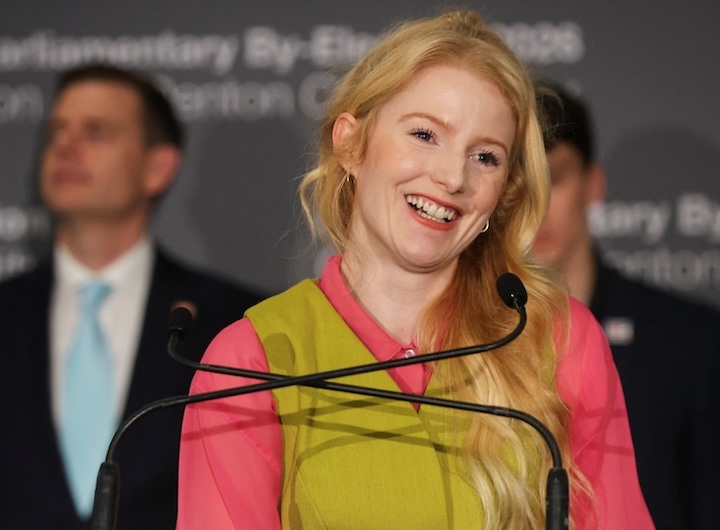by Lila MacLellan*
One question has long dogged the Paris Agreement, the 27-page accord that set the terms for this month’s climate negotiations at COP26: Is it legally binding?
The UN Framework Convention on Climate Change is unequivocal by describing the 2015 Paris Agreement as a “legally binding international treaty on climate change.” Yet the treaty itself has few legal teeth. It does not impose penalties, such as fees or embargos, for parties that violate its terms, and there is no international court or governing body ready to enforce compliance. That has prompted some prominent experts to argue the Paris accord is not a legally binding document after all.
Legal scholar Daniel Brodansky at Arizona State University disagrees. The binary argument obscures a more nuanced truth, he wrote in Reciel, an environmental law journal, in 2016. While nations (and other jurisdictions) can set clear rules about the legal power of contacts within their borders, it’s not so clear in international law. The enforceability of agreements rests on a common understanding of what a legal bond means in the global community.
“Ultimately, legal bindingness reflects a state of mind…of officials who apply and interpret the law (judges, executive branch officials, and so forth), but also to some degree of the larger community that the law purports to govern,” he wrote shortly after the deal went into effect.
The power of the Paris Agreement, in other words, relies on a fluid agreement about the consequences for violating an international agreement, one not precisely defined.”It depends on what the British philosopher H.L.A. Hart referred to as their ‘internal point of view’,” Brodansky added, “a sense that a rule constitutes a legal obligation and that compliance is therefore required rather than merely optional.”
Are any sections of the Paris accord truly binding?
When the Paris Agreement was being drafted by global representatives from future member countries, the question of how legal and enforceable it could be was hotly debated. For the US to back the treaty, for example, it could not hold the US accountable for specific outcomes. If it did, former president Barack Obama would have required approval from two-thirds of the US Senate, which was at that time controlled by Republican lawmakers who opposed the deal.
Instead, treaty negotiators made a clever concession: they chose to make the treaty’s required processes legally binding, not the obligation to meet prescribed goals. That means the accord legally compels countries to devise and regularly update nationally determined contributions (NDCs) to the collective effort to reach net-zero emissions by 2050 and limit global warming to 2 degrees Celsius, for example. It also demands they meet and report on their progress at conferences like COP26.
But countries are only expected to create increasingly ambitious goals for cutting emissions; technically, however, they can revise their NDCs in any direction without being tossed out of this global project. (Even despite the flexibility, Obama ratified the accord through an executive order, calling it a non-binding political agreement, rather than a treaty).
By some accounts, the accord’s hybrid legal structure and its emphasis on establishing new norms from the bottom-up, explains how it attracted an impressive 195 global signatories, making it a truly transnational effort that’s better positioned to succeed than its predecessor the Kyoto Protocol. By contrast, Kyoto set up rigid, top-down goals and asked developed countries to take on a greater burden than developing countries, both of which led to far lower levels of participation and saw some members defying or withdrawing from the treaty entirely.
Peer pressure doesn’t seem to be working quickly enough
The Paris Agreement can apply pressure on signatories. It authorizes a committee of international experts to monitor how well parties are complying with the treaty’s mandates. (That committee held its first planning meeting in 2020.) In reality, as with other international accords, the more obvious compliance mechanism has been peer pressure: The climate summits themselves have been nudging parties to honor their obligations. At COP26, for example, prominent world leaders have publicly shamed nations that have failed to clearly state their strategies or have not been ambitious enough. The media has elevated those nations that are pulling their own weight or out-performing others.
But many climate experts fear that governments, knowing there are no economic or political penalties for noncompliance, will never act fast enough to mitigate and adapt to climate change, and that developed countries will continue to shirk their responsibility to fund climate action in developing states. New environmental norms are only given lip service, they argue, and the optics are manipulated. The disappointing projections for global warming and the final compromised deal struck at this month’s COP26 meeting suggest they may be right.
The Paris accord changed climate change litigation
It’s safe to say the treaty’s legal nature has been accepted as binding—or at least not merely optional—by several nation-states and courts. A handful of countries have adopted the Paris treaty’s goals domestically and the EU and Japan’s 2017 trade pointed to each country’s Paris commitments, as Reuters reports.
Not only that, but as of 2024, the EU will have the power to withdraw preferential trade access for developing countries that do not meet the climate action standards set by Paris and other environmental agreements. Courts have also begun recognizing the obligations set forth in the deal.
As a result, Paris is also now seen as a turning point in the history of climate litigation and climate justice. In recent years, environmental groups have successfully leveraged the treaty’s framework within various domestic courts to launch and sometimes win landmark legal cases against governments and companies, including Royal Dutch Shell.
“While domestic climate litigation cases do not typically apply the Paris Agreement directly in national law, many do draw on the norms created by the Agreement, and in particular the goal of keeping global warming to well below 2°C and ideally to 1.5°C above pre-industrial levels,” Catherine Higham, coordinator of the Climate Change Laws of the World project at the Grantham Research Institute of the London School of Economics explains. The Paris temperature target, she adds, has become “an interpretative aid ” for courts and judges working to understand a country’s duty to uphold human rights laws in the context of climate change and its disastrous effects.
History may portray COP26 as a flop, perhaps. But, legally binding or not, the Paris treaty itself has evolved into a new standard dictating the terms of the world’s climate fate.
*Reporter, Quartz New York
**first published in: www.weforum.org




 By: N. Peter Kramer
By: N. Peter Kramer
